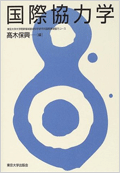Jin Sato

Jin Sato
Professor, Asian Network
Keywords: Resource Governance, Development Studies
Lab webpage
Degree
Current research topics
-
The role of intermediary organizations in the process of economic development
-
Re-examination of the concept of “dependency”
-
The long-term impact of foreign aid
Selected publications
-
Jin Sato, 2021, “Compulsion to Maintain: Water and State Power in Southeast Asia” in Terao, A. and T. Funatsu, eds. Origins and Evolution of Environmental Policies. Edward Elgar, pp. 105-123
-
Jin Sato, 2020. “Research at a Distance,” International Journal of Asian Studies vol. 17, Issue. 2, pp. 105-108
-
Jin Sato, 2014. “Resource Politics and State-Society Relations: Why are certain states more inclusive than others?” Comparative Studies in Society and History. Vol. 56. No. 3, 746-777
-
Jin Sato, ed. 2013. Governance of Natural Resources : Uncovering the Social Purpose of Materials in Nature. United Nations University Press
Research
What is “development”? I attempt to approach this broad question from the historical experience of Japan and Southeast Asia. More specifically, I explore the utilization of the concept of dependency as a lens to examine how state and societies are related to each other. Dependency is a concept that has been portrayed as something to be overcome by development. To achieve independence and autonomy is considered as the main goal of development. Yet, I have come to realize that all types of development require some form of dependency. The question is to identify the nature of dependency that might avoid dominance and extreme inequality. By focusing on the role of intermediary organizations, I plan to conduct cross-national research on the social mechanisms that mediate the penetration of state power that is ostensibly promoting development.





